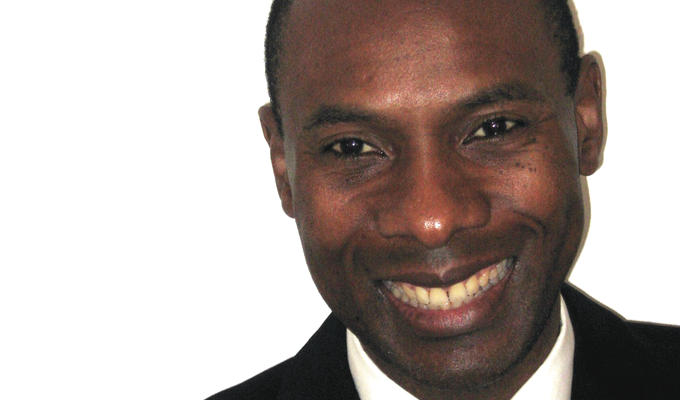
Comedy Goes to Court by Carl Unegbu
Review of a book about how comedians can face legal fallout
What a good idea for a book… but how terribly executed.
Carl Unegbu, a New York lawyer, comedy fan and blogger, has combined his personal and professional interests with this collection of articles about when those two worlds collide.
Seven chapters cover categories such as how comedians might land themselves in court, including contract disputes, defamation cases, joke theft and even privacy lawsuits when talking about an ex on stage.
His studies are mostly American, although there are some British examples too, such as the row between the rival free show operators at the Edinburgh Fringe and the Daily Mirror falsely branding Frankie Boyle’ racist’, Stephen Grant and Louse Reay talking about their exes and the Glee comedy clubs’ lawsuit against the Fox TV show of the same name.
The conflicts tend to raise points of law – as well as what might count as decent behaviour – that should interest comedians as well as fans of the artform, as Unegbu lays out the cases and their possible defences.
However, it’s woefully let down by the author’s laziness – and clunky, long-winded cliché-riddled writing style.
For starters, there’s little attempt to make this into a proper book. Instead it’s merely a collection of posts from his blog, O’Carl’s Law. Which means the same points and turns of phrase keep coming up over and over again. Fine if you’re reading articles months apart, but a drag when they recur just a few pages apart. You will quickly tire, for example, of learning how much America’s First Amendment, which enshrines freedom of expression, is the comedian’s friend that makes the US the best place in the world to be a comic.
Also, the blog seems to have been very active around 2011 to 2013 and petered off since, given the vintage of the cases he covers. Just five of the 40 or so stories here have been in the last six years, which gives the book a hugely dated feel. Jimmy Kimmel, for example, is described as a ‘rising star’, while there are constant references to comedy being in boom times – a bubble that has long burst. ‘Comedy today is at a golden age and Louis CK is one of the greatest beneficiaries,’ one chapter starts, as if the comic’s career hadn’t imploded. To be fair, in 2012, it hadn’t…
More irritatingly, his reluctance to update ancient articles means decade-old cases are written about as if they are still active and unresolved. Some chapters have brief postscripts revealing the outcome, if we know it (many disputes end up being settled out of court with the terms shrouded in secrecy), but many are couched in ‘maybes’ and ‘looks-as-ifs’, when matters have been closed.
Around the points of law, Unegbu also writes in a clunky stream-of-conscious way which is probably meant to evoke folksy, everyday speech patterns but actually winds up being the sort of grinding verbal diarrhoea, full of awkward metaphor, that desperately needs an editor.
Take this introduction: ‘Though he’s still pretty young, aspiring comedian Charles Ross not long ago learned a simple lesson he should have known all along: that comedy is only about jokes if other people also understand what is happening as a joke, even if they may not like the said joke. And of course, as long as any funnyman involved stays within the boundary lines of the law. Stepping outside the lines drawn by the law can really push things off a cliff and bring unintended consequences for the jokester, including possibly an unexpected visit to the jailhouse. In other words, a bad joke is one thing, but in the real world out there not everything is regarded as a joke – for instance, giving wedgies to total strangers. (For those who may not be familiar with the term, a wedgie occurs when someone’s underpants bunch up between the person’s buttocks. Oftentimes wedgies are pranks associated with schoolyard bullies and most folks don’t think of the wedgie look as "cool.")’
That is a very convoluted way of setting up the case of YouTube prankster Ross, who was charged with battery for giving said wedgies to unsuspecting members of the public. He’s now at least 29 and has a much longer rap sheet, unmentioned by Unegbu.
He’s got a decent professional insight on a potentially fascinating subject, on which there’s surely a great to be had. But on this attempt, the verdict is in: the lack of polish makes for a frustrating slog of a read, however promising the raw material.
• Comedy Goes to Court: When People Stop Laughing And Start Fighting by Carl Ugbenu is self-published via Hybrid Global Publishing, and available from Amazon.
» Our review of Ugbenu’s earlier book Comedy Under Attack: The Golden Age And The Headwinds
Published: 26 Jun 2023








